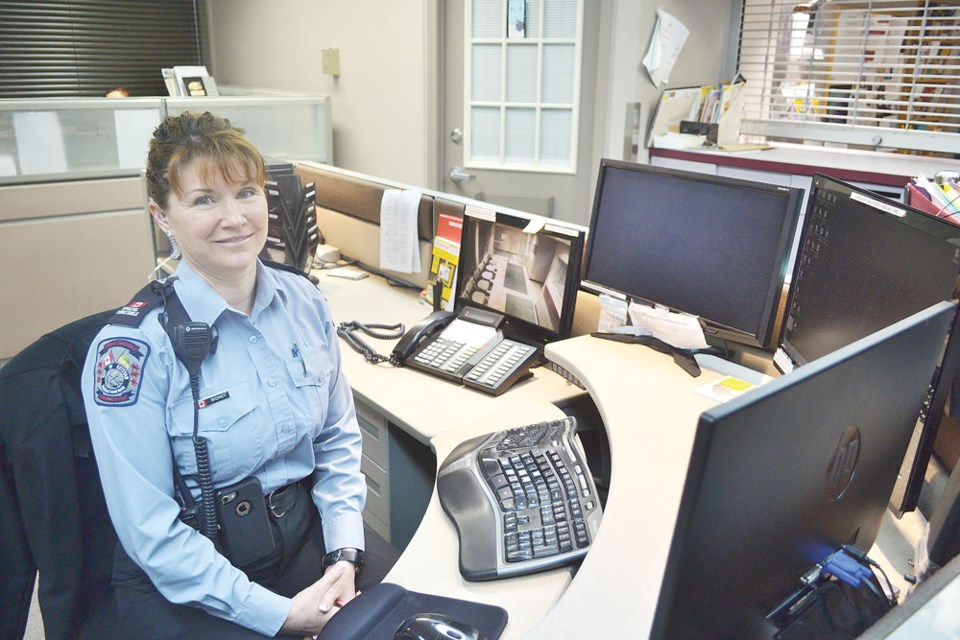An organization wants to set up a chapter in southeast Saskatchewan to help out when someone goes missing.
Public meetings will be happening this month to establish a Search and Rescue Saskatchewan Association of Volunteers (SARSAV) chapter. The meeting for Estevan will be on Jan. 23 at the Western Star Hotel, starting at 7 p.m.
Other meetings will be Jan. 16 at the Carnduff Education Complex, Jan. 17 at the Carlyle Memorial Hall and Jan. 24 at the City Works building in Weyburn. All will start at 7 p.m.
Meetings are arranged and hosted by a partnership between the RCMP Search and Rescue Team, SARSAV, the Estevan Police Service and Weyburn Police Service.
Presentations will be made by RCMP Cpl. George Riffle and Dale Hintz, the president of the Parkland SARSAV chapter.
“They’ll be explaining what a volunteer does, how they’re trained, the development or organization for the southeast chapter, and they’ll be talking about the provincial group, because we’re under a provincial search and rescue group,” said spokesperson Katia Bigney, who is a special constable with the EPS.
At the meeting, people will be able to ask questions, and they can sign up to be part of the southeast chapter and receive the training.
Volunteers need to take 40 hours of basic training before they can go on a search and rescue mission, and then there are other training modules they need to take, such as how to run a compass, and overnight skills in case they go out on a search and can’t get back to the base before the end of the day.
“There’s a nice long list of training that each individual has to take as a civilian before they can go out on a search,” said Bigney. “There’s quite a bit involved with it, so that training is provided by the province, and it’s very affordable.”
She hopes the training can begin in March.
The initial training is a significant time commitment, but after that, the commitment is reduced to the search and rescue missions, the additional training and the occasional activity out in the community.
While there are a number of situations in which someone could be called out, the most frequent would be for a senior citizen, a child or someone with a disability who has gone missing.
In many instances, missing person cases are solved quickly by the local police agencies, but there are exceptions when they’re not.
Riffle helped start the Parkland group a few years ago. He noticed there wasn’t a group in the area, and so he put out some feelers and arranged an organizational meeting. Others jumped on board and took it from there.
He believes it’s great to have such a team in a location.
“It’s part of awareness and just preparedness. It’s community support and it’s a community agency that can be called upon by any police force, whether it’s the RCMP, or whether it’s Estevan city or Weyburn city police.”
Having individuals who are trained and can assist with a missing person file is a boost for the area.
The time commitment is ultimately up to the individual. Those who want to be on the executive, or who want to instruct, can wind up dedicating more time.
But if there are those who can only help out with the searches when a call comes in, then that’s all right, he said.
“There are all types of skills that are required, be it somebody who is able to go out and walk 20 miles in the bush, up and down hills, or maybe it’s somebody who’s retired and can’t physically do that type of stuff, but they’re excellent with public relations, they’re good at helping with fundraising, or they’d make an excellent secretary or treasurer,” said Riffle.
Dale Hinz has been involved with Parkland’s SARSAV chapter since its inception three years ago. He spent 26 years with a mine rescue team, and found out through his son that the Parkland chapter was being formed.
“I hadn’t really thought much of it before, because I was active in mine rescue and work, so I was very interested, because I had a background in training and safety and first aid,” he said.
He has remained involved because of his desire to help people and give back to society.
“I have benefitted so much with my training, so I’d like to be able to give it back and help and make things better for other people,” Hinz said.
He already had a lot of training through mine rescue, and when they started, the Parkland team had a lot skills from its members, including first aid, CPR, rope rescue experience and technical skills.
“You find that in the communities, once you bring people together, all these people have different skill sets that are all so useful,” Hinz said.
He noted the Parkland group is also active in the community, with an Adventure Smart program in the schools. Students get a colouring book, rescue blankets and pamphlets on what to if they do get lost. Hinz believes there’s a preventative side that’s very rewarding when teaching young kids.
There would be no limit to the number of people Bigney would like to have signed up for the southeast chapter. The volunteers who are trained in a search and rescue group are asked to commit their time and expertise when a police agency asks them to be involved, but Bigney recognizes that when a call comes in, not everyone will be available.
“The more people that we have trained, the better chance that we’ll have a higher number available.”
She’s not sure what the minimum number would be, but based on the interest that’s been shown already, she doubts it will be an issue.
Search and rescue volunteer groups for civilians located across the country, she said, because there is a national organization that is responsible for each of the provinces. Each province then has chapters.




